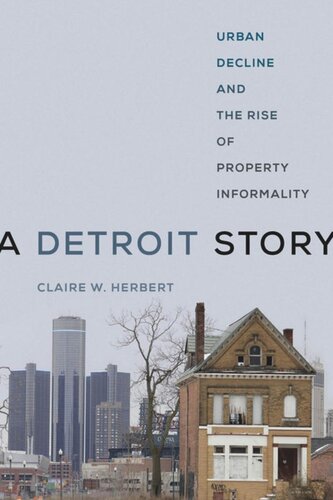

Most ebook files are in PDF format, so you can easily read them using various software such as Foxit Reader or directly on the Google Chrome browser.
Some ebook files are released by publishers in other formats such as .awz, .mobi, .epub, .fb2, etc. You may need to install specific software to read these formats on mobile/PC, such as Calibre.
Please read the tutorial at this link: https://ebookbell.com/faq
We offer FREE conversion to the popular formats you request; however, this may take some time. Therefore, right after payment, please email us, and we will try to provide the service as quickly as possible.
For some exceptional file formats or broken links (if any), please refrain from opening any disputes. Instead, email us first, and we will try to assist within a maximum of 6 hours.
EbookBell Team

4.7
16 reviewsBringing to the fore a wealth of original research, A Detroit Story examines how the reclamation of abandoned property has been shaping the city for decades. Herbert lived in Detroit for almost five years to get a ground-view sense of how this process molds urban areas—participating in community meetings and tax foreclosure protests, interviewing various groups, following scrappers through abandoned buildings, and visiting squatted houses and gardens. Herbert found that there’s a disjunction between different types of property reclaimers: lifestyle back-to-the-earth new residents, primarily more privileged, whose practices are often formalized by local policies, and longtime more disempowered residents, often representing communities of color, whose practices are marked as illegal and illegitimate. She teases out how the divergent treatment of these two approaches to informally claiming property reproduces long-standing inequalities in race, class, and property ownership. More generally, A Detroit Story examines how the attempt to formalize property informality in cities harms the most vulnerable.